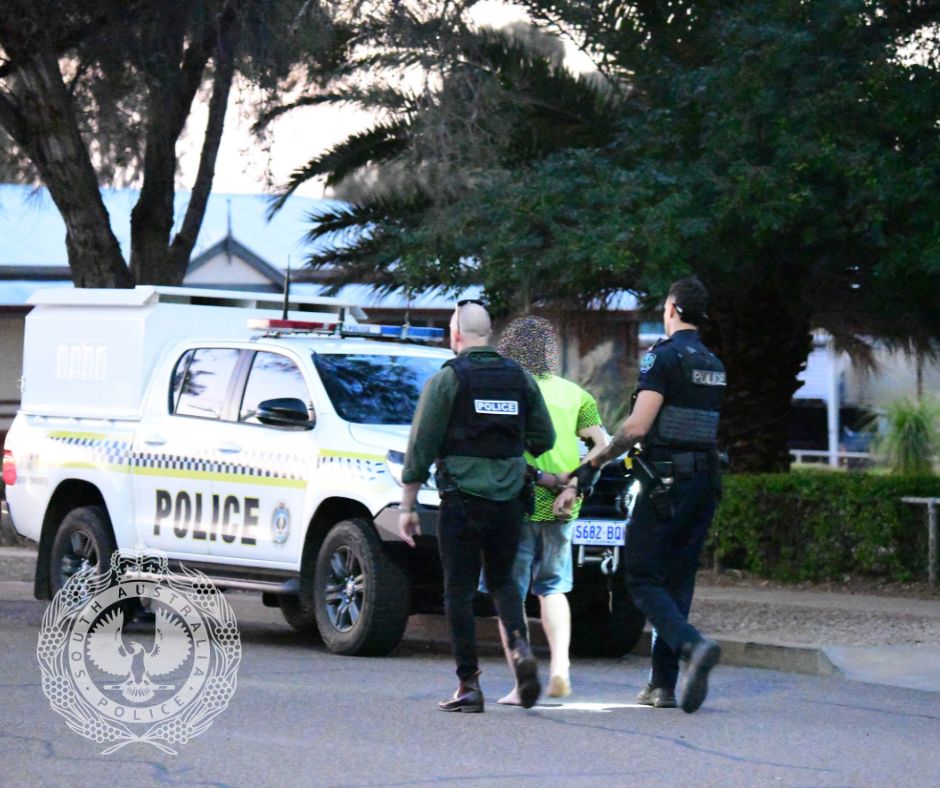It’s not often you hear of a boy growing up in a peri-urban area with a dream of being a farmer. But if you want something badly enough, you can make it happen.
Not only is he now farming for a living – he and his partner have turned conventional agriculture on its head.
The Food Farm uses time-tested slow and regenerative farming practices on the NSW Central Coast, just on the outskirts of Sydney. It has given their customers a rare personal connection with the food they eat.
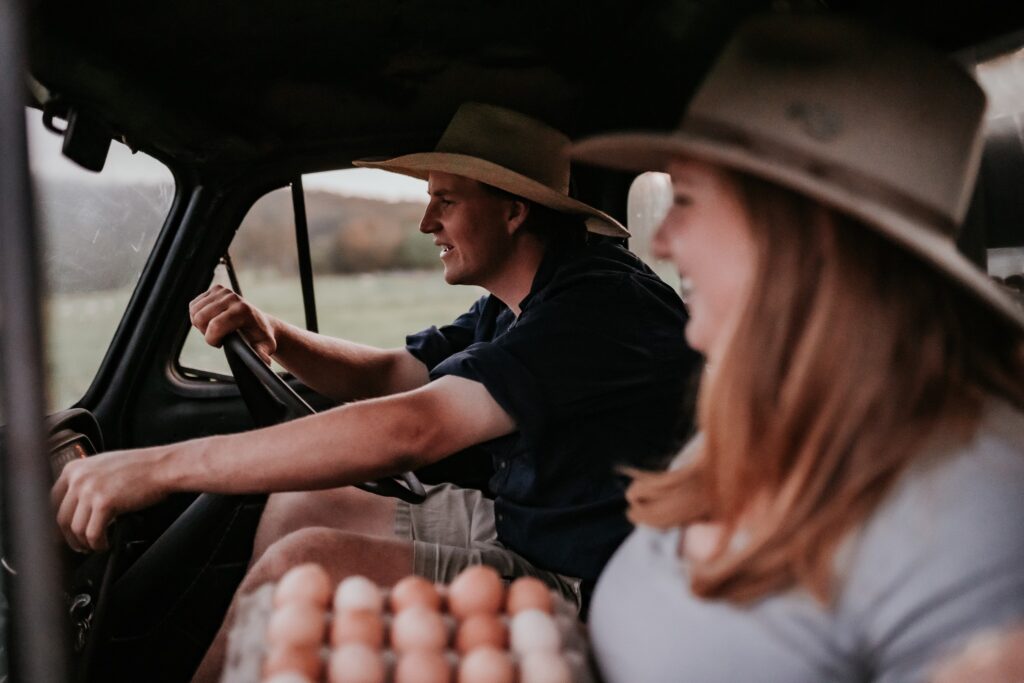
Tim Eyes and Hannah Greenshields knew that purchasing land was going to be a financial challenge, but instead of turning away from the life they wanted, they decided to lease property. They’re now up to seven parcels of land. It’s a success story that’s enabled the couple to become first generation farmers.
“It’s the reason we’ve been able to scale our business to where we are. We haven’t had the mortgage behind us that’s tied us to one farm. We’ve been able to be really fluid with our growth,” Hannah explains.
Determined to farm
Tim never even contemplated doing anything but farming. He finished Ag College but found the work left him disconnected from humans. “There was a calling to tell agriculture’s story from our point of view but also take a bit more responsibility for the animal’s life and essentially, its death,” he shares.
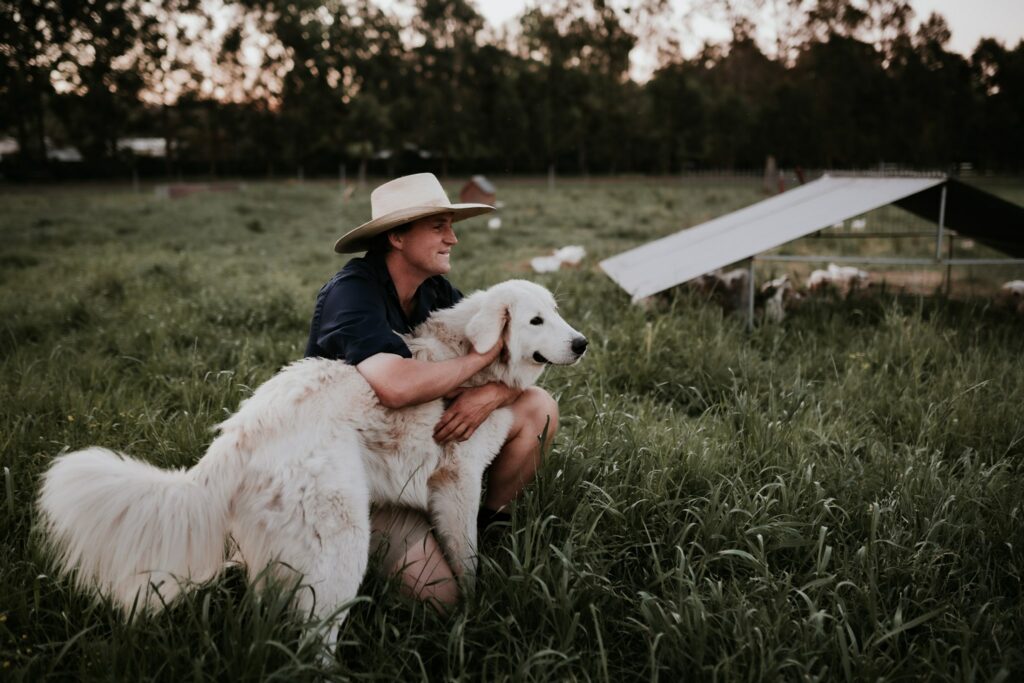
The only thing missing was someone to share that journey with. “I was a young opera singer,” says Hannah. “I was living in South Australia, told mum and dad I was moving to Sydney to pursue that a little bit more. Then, found this lovely farmer who was side-stage watching his uncle in a show. Fell in love and had to quickly learn about life on the land!”
Fairy floss farming
Before starting The Food Farm, Tim’s work involved being a contractor on dozens of farms. “I describe it as fairy floss. Making things look green and appealing to humans, rather than what’s actually good for our environment. The things that don’t give us that instant feedback,” he explains. That’s how he started adopting regenerative practices.
The Food Farm is about 100 kilometres outside Sydney, and they sell at local markets as well as direct to door delivery, which means the food miles on the shopping basket are negligible.
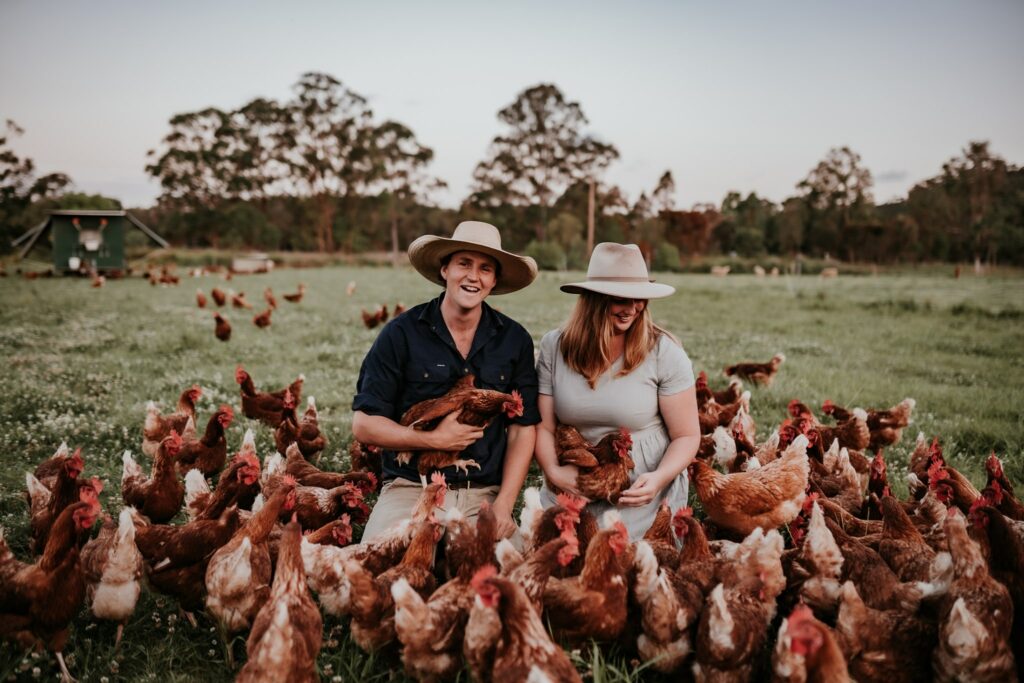
Food is medicine
“There’s so much mistrust and greenwashing. We see it all the time. People aren’t silly. They can see through that. So, with a personal connection, people tell us about how they’ve overcome an ailment from eating our eggs or our beef,” says Tim.
“The amount of vegetarians and vegans who are coming back to meat, once they can trust how it’s farmed, knowing we cared for that animal is astonishing. We would have at least one of those conversations a week.”
The amount of vegetarians and vegans who are coming back to meat, once they can trust how it’s farmed, knowing we cared for that animal is astonishing.
For Tim, regenerative farming is about trying to mimic nature as much as possible. “It’s the next level of care. It’s not about saying we care. It’s about truly getting down there and looking at the soil. Not looking for the quick fix anymore. It’s taking responsibility.”
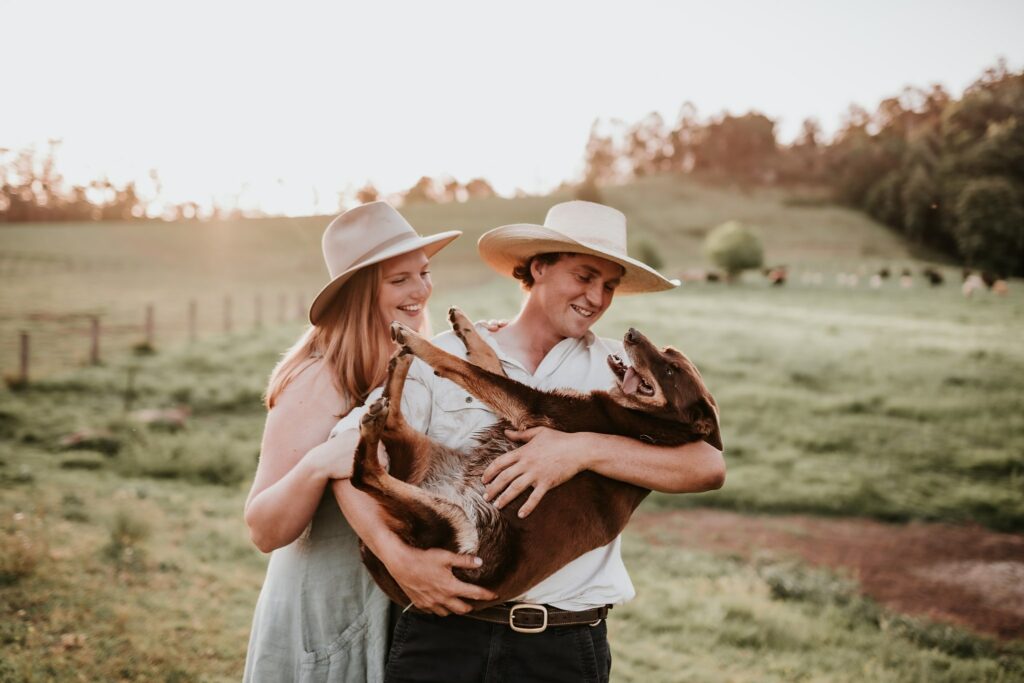
On The Food Farm, that has meant on-farm worm farms, eliminating chemical inputs and moving stock more often to rest the soil. Tim says, making these changes was easy being a first generation farmer as there was nothing to break away from.
“We had no pre-conceived ideas. That is dangerous I think. You can drink the Kool-Aid, read every book but things done in America for instance are done on a different scale. But I think we can take the good bits from all practices. You have to tread cautiously.”
Creating connections
Despite the challenges, this young couple isn’t looking back. Hannah has found joy in connecting with the earth and people.
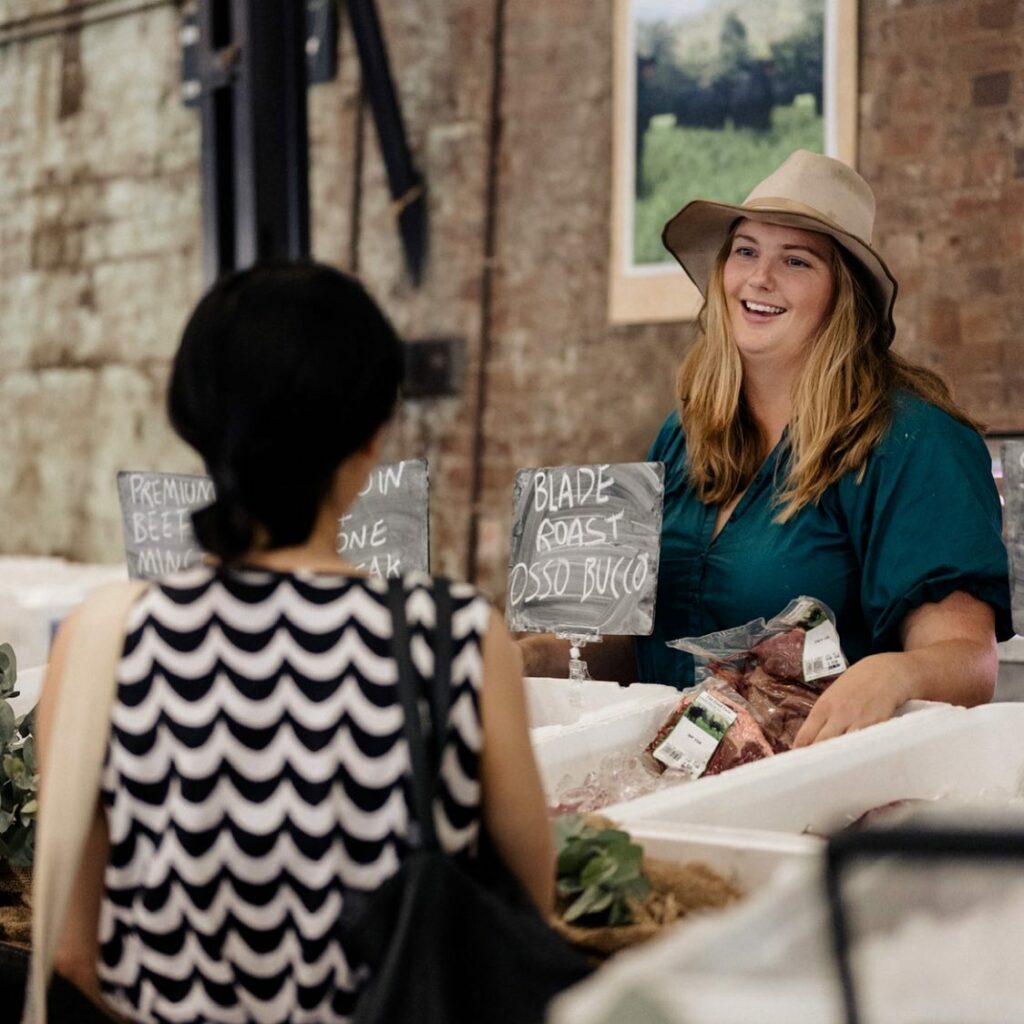
“Attachment to land ownership is such a barrier. People can work together and co-exist on farms. In fact, some people pay us to be on their farms with our chickens fertilising their land. It’s a win-win situation.”
Tim loves the true surrender of working with nature. “It’s taken me to my worst spots in my life. But it’s also taught me how to surrender to how it’s meant to be. Whether it’s a flood or a fire, or even a good time. You wake up and it’s still going, no matter what.”
Tim and Hannah see it as their job to connect with consumers, not the other way around and relish the chance to shake the hands they feed. And they are certainly shaking a lot of hands!
Hear more stories just like Tim and Hannah’s by subscribing to the (or wherever you listen to podcasts) and follow podcast host Angie Asimus on for more updates.







